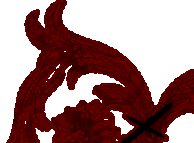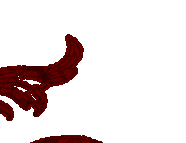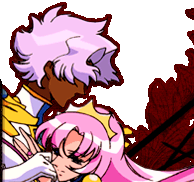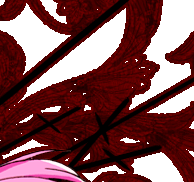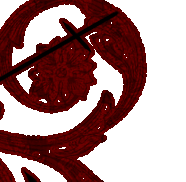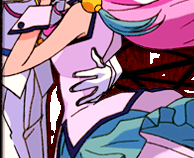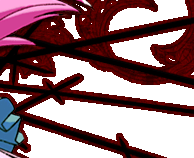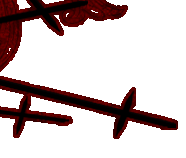
This analysis
was donated by mistspinner.
You know something, as much as I absolutely loathe Akio, there’s also this odd sense of
mental dissonance whenever I think about his character too much – because, at root, Akio started
out as Dios who, even if his methodology was wrong, still is heavily implied to act from the
same altruism and compassion that drives Utena herself.
Then we get to present day, and Akio is a bastard, a completely asshole of an antagonist –
And yet, you can never quite forget that Akio was Dios once, and that sense of lost innocence
and goodness makes Akio/Dios’s present state all the - sadder? more pathetic? tragic, I suppose –
so in a way, he’s a Tragic Villain, not necessarily because of Things that Happened to Him, but
because of what he let himself become.
At the same time, this tragedy does nothing to detract from his essential
douchey nature - but at the same time as you are made vividly, viscerally aware of Akio’s
douchebag nature, his time as Dios is still there, at the back of your mind, a disconcerting
reminder that this complete asshole nonetheless was once, actually, quite a sweet kid. It’s a very
grey sense of morality and character we’re talking here, and it ties a lot to one of the major
themes in Utena, that no one is truly diametrically good or bad, witch or princess.
And – thinking out loud here, indulge me – there was a wonderful analysis on ohtori.nu’s Akio
subsection talking about his nature as an archetype, which in essence meant that he had to, from
the beginning, be necessarily wholly good or bad (as befits a fairy tale morality). Thus, the essay
goes on to say, that black-and-whiteness, that duality is what causes Dios to shift to Akio –
because once Dios loses some of his innocence, he must lose it all. Black-and-white thinking
then, is the fatal flaw of Dios’ character – which ties back, again, into Utena’s themes of
ambivalence: no one is good or bad, and Utena herself ultimately triumphs where Dios does not
because she is able to accept that with Anthy. Even as Anthy hurts her and turns out to be far less
innocent than she believes, Utena refuses to cast her away for good, to accept that she’s purely a
Bad Witch instead of the Good Princess she had acted like up until then - Utena, for all her
naivety, succeeds because she rejects the dualistic prince/princess, princess/witch view that Akio
could never let go.
But back to the man himself.
What I was saying, in essence, then, is that Revolutionary Girl Utena manages to give us the rarest of
a Complete Monster villain and a Tragic one, together, where even as Akio is painted as 100%
asshole, there’s this nagging sense of dissonance because of his past, which makes it hard to hate
him even as you hate him – preventing you, in essence, from viewing the series’ most morally
dubious character in black-and-white terms.
To which all I have to say is well-played, BePapas. Well-played indeed.
 |

